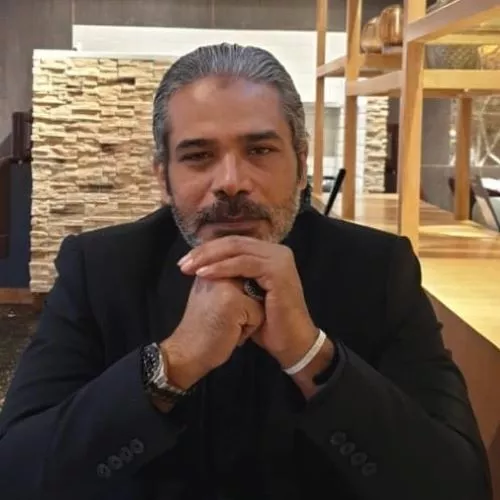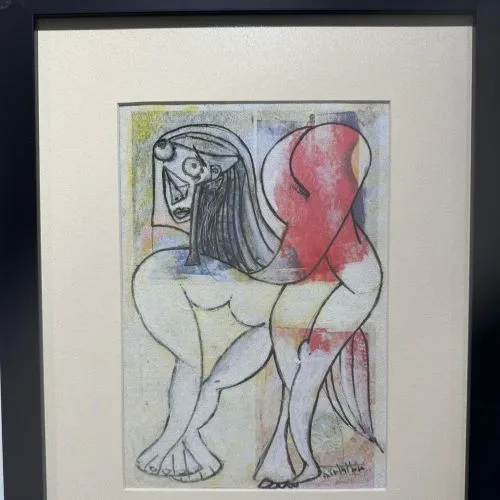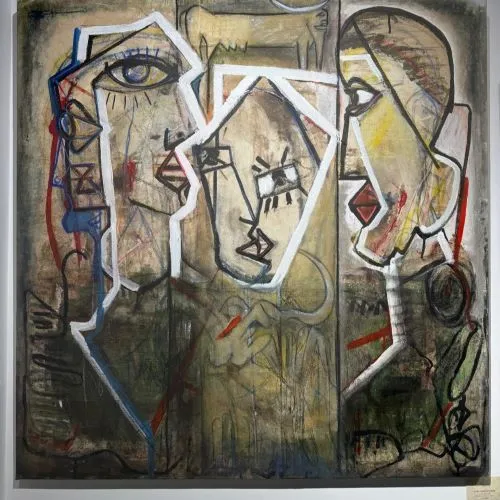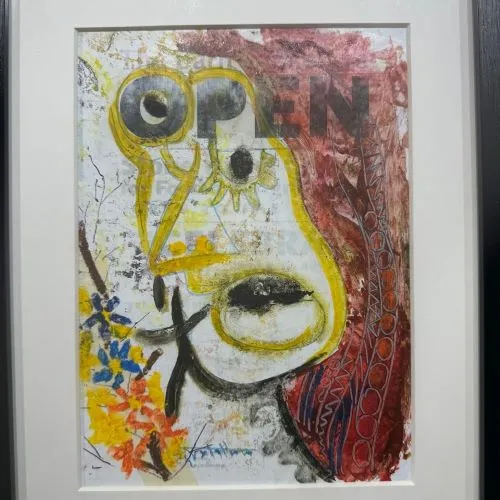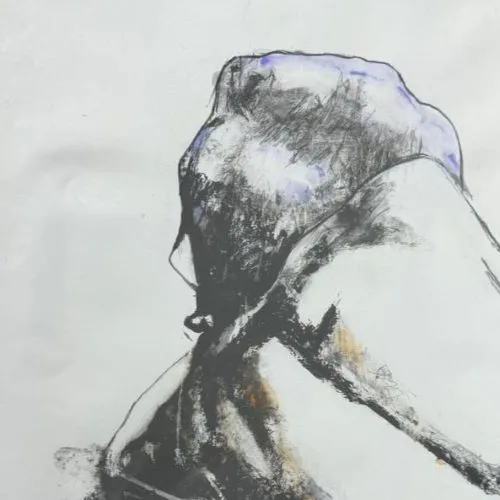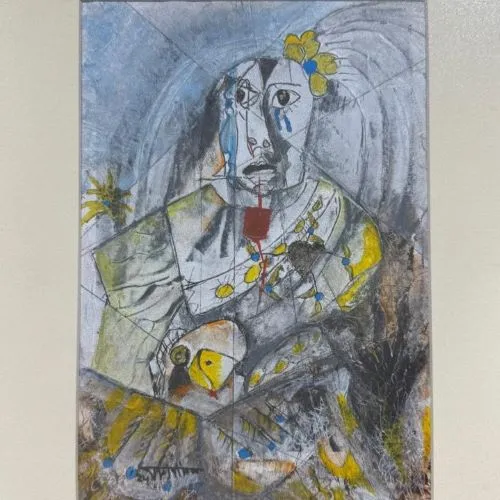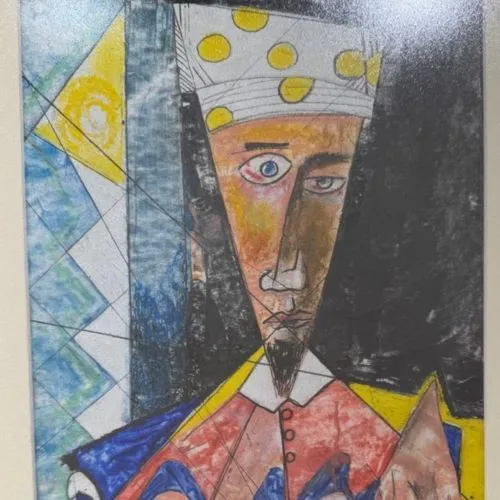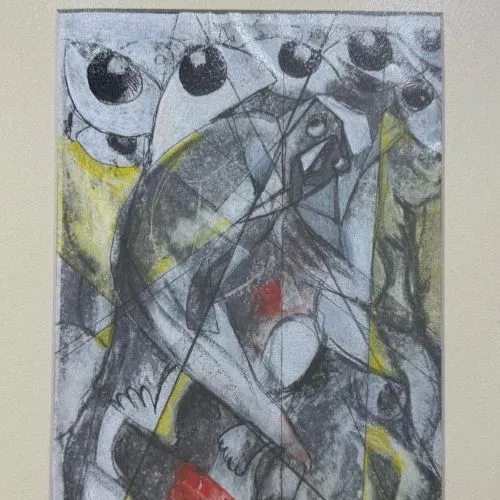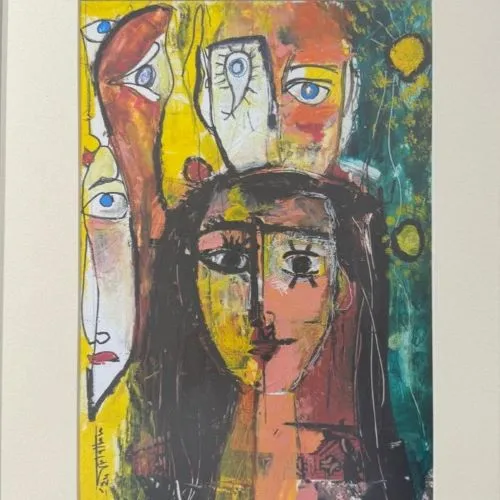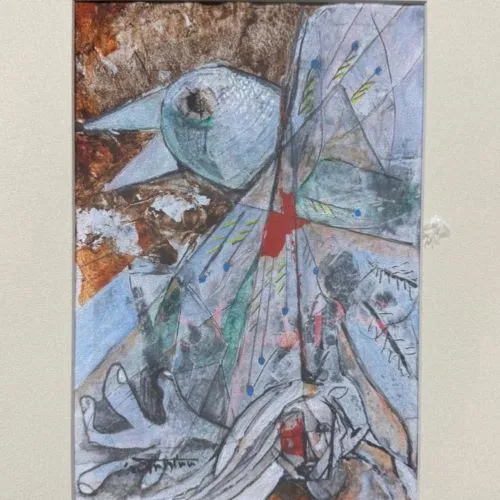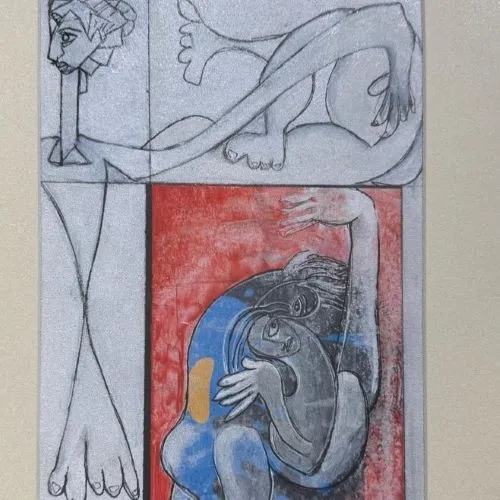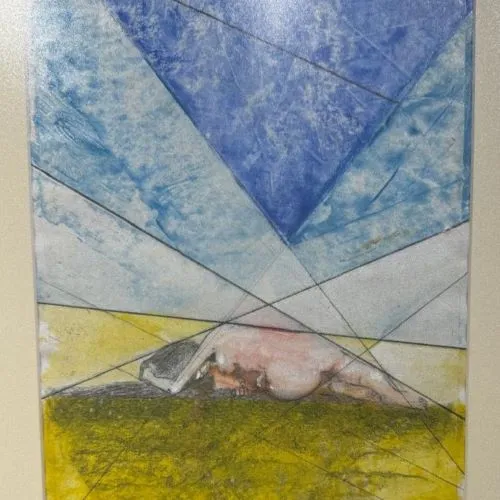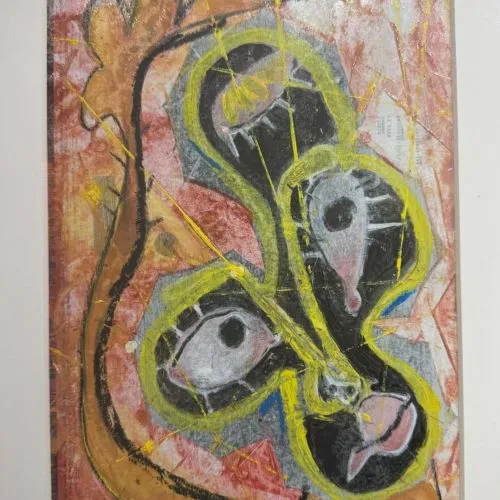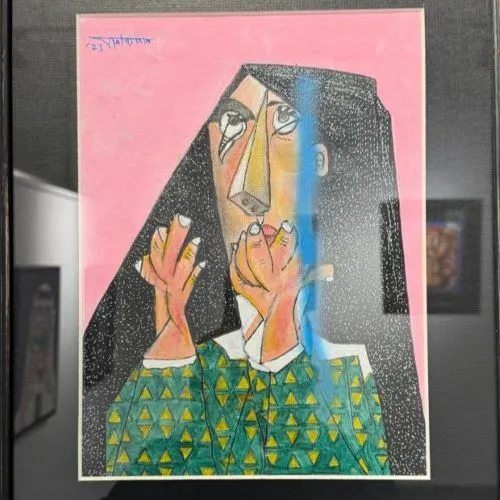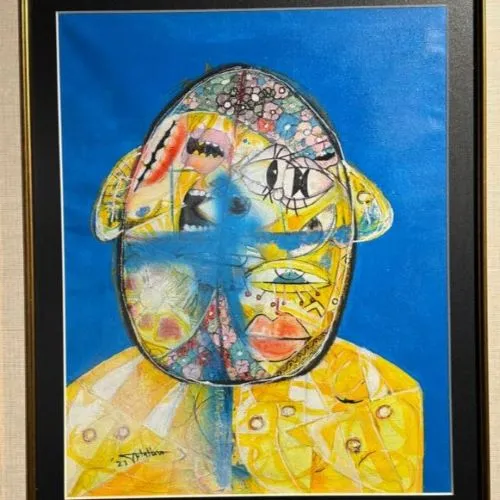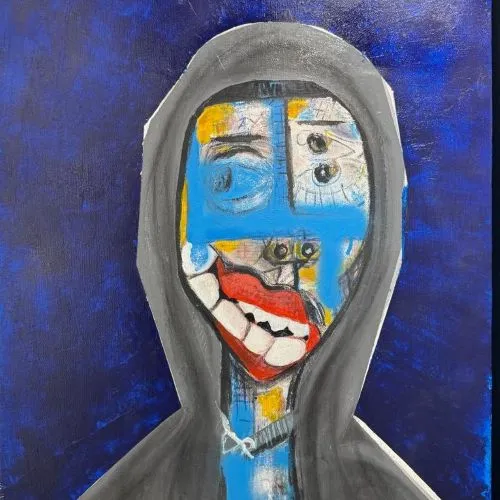Visual artist Dr. Muhammad Al-Amiri presented his first personal exhibition (My Beloved, Riyadh) at the Forum of Civilizations Gallery in Riyadh.
In this exhibition, Al-Amiri collected more than (20) works of art, most of which showed a cubist character. Al-Amiri chose the name (My Beloved Riyadh) out of loyalty and belonging to this great city, the city of Riyadh, from which he started, lived, and visited many countries of the world to return to and present his first exhibition there. Al-Amiri presented this exhibition with strong boldness, transcending traditional barriers with a symbolic, thematic, and color presentation that mostly dealt with women and the city, expressing them in a variety of different and symbolic situations, so that each painting contained within it much of what he wanted to convey to the recipient.
Al-Amiri mentions that since he was 19 years old, he chose to have his first personal exhibition after the age of 50. Al-Amri has a long artistic experience of nearly four decades through which he learned a lot. He followed his passion and became attached to it, traveling the world in search of knowledge in the sciences of art and color, starting in Egypt. To Europe, America and other countries, and to study at the hands of many of the great artists there, and to take from them and be influenced by them, and the works that influenced him most were the works of Picasso, which he traveled to many countries in order to see and search for them, and after that, the great impact of Picasso’s style on his artistic works and production during The external research process lasted for approximately (35) years.
Dr.. Muhammad bin Saleh Al-Amiri was born in 1968 AD. He studied the early and university levels in the city of Riyadh and obtained a bachelor’s degree in psychology, a master’s degree in project management, and a doctorate in management and development. He loved fine art and practiced it since childhood and became a professional at an early age. He obtained many development courses. He is a professional trainer in fine arts. He aspires to bring about a different shift in the development of plastic art and its methods so that there are different, unconventional experiences in Saudi plastic art.
